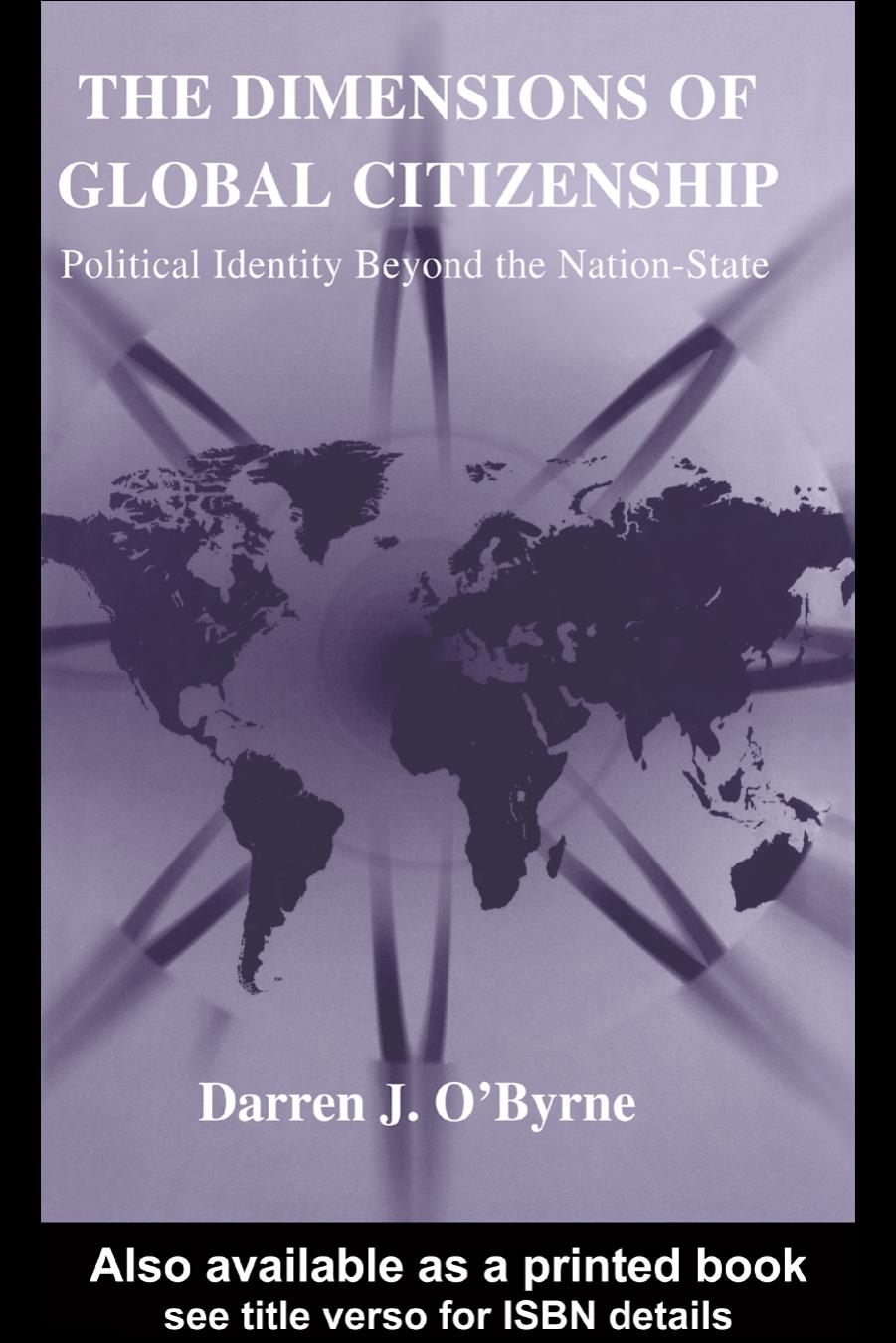The Dimensions of Global Citizenship: Political Identity Beyond the Nation-State by Darren J. O'Byrne

Author:Darren J. O'Byrne [O'Byrne, Darren J.]
Language: eng
Format: epub, pdf
Tags: Political Science, General
ISBN: 9781135772055
Google: okyRAgAAQBAJ
Goodreads: 17523917
Publisher: Routledge
Published: 2003-09-15T00:00:00+00:00
In the next chapter, I want to show how these claims, which form the foundations of a social theory of global citizenship, have been put into practice. My model is a campaigning movement known as World Government of World Citizens. This organization reflects a series of assumptions that we might wish to examine, which either have their roots in, or betray similarities to, important traditions in social and political thought. Taken together, we find the makings of a significant programme for political action. From Rousseau, for example, we have a particular form of contractarian thinking, and radicalized democratic procedures, in which the individual citizen is always sovereign. Habermas contributes the notion of communicative or discursive democracy to this idea, while his theory of universal pragmatics locates the universals of human life within the everyday lived world. As we discussed in previous chapters, Habermas is also useful because of his contributions to the theory of modernity and his work on the crisis of the nation-state. Clearly, the pragmatic realities of the late modern age require a politicization of language; hence, central to this discourse (and in particular that of the organization) is an insistence that one must declare oneself a world citizen in the here and now, and an examination of the way that this might connect not only to Habermasâs universal pragmatics but also to the idea of performative citizenship. Citizenship under such conditions cannot rely upon contractarian assumptions; it must have an alternative, performative dimension. Bourdieu is useful in so far as his theory of cultural capital can be used to show how globality is unevenly distributed across social groups. Finally, Bobbio has been mentioned in the light of his statement regarding the interconnectedness of peace, democracy and human rights. Taken together, the above constitute a useful way of understanding global change, and global consciousness, and the possible meaning of global citizenship. We should now turn to this organization which I have said serves as a useful example of this new form of citizenship: global citizenship.
Download
The Dimensions of Global Citizenship: Political Identity Beyond the Nation-State by Darren J. O'Byrne.pdf
This site does not store any files on its server. We only index and link to content provided by other sites. Please contact the content providers to delete copyright contents if any and email us, we'll remove relevant links or contents immediately.
Spell It Out by David Crystal(36019)
Life for Me Ain't Been No Crystal Stair by Susan Sheehan(35718)
Cecilia; Or, Memoirs of an Heiress — Volume 1 by Fanny Burney(32410)
Cecilia; Or, Memoirs of an Heiress — Volume 3 by Fanny Burney(31818)
Cecilia; Or, Memoirs of an Heiress — Volume 2 by Fanny Burney(31794)
The Great Music City by Andrea Baker(31248)
Professional Troublemaker by Luvvie Ajayi Jones(29570)
We're Going to Need More Wine by Gabrielle Union(18950)
The Secret History by Donna Tartt(18803)
Twilight of the Idols With the Antichrist and Ecce Homo by Friedrich Nietzsche(18473)
All the Missing Girls by Megan Miranda(15484)
Cat's cradle by Kurt Vonnegut(15145)
Pimp by Iceberg Slim(14311)
Bombshells: Glamour Girls of a Lifetime by Sullivan Steve(13949)
Talking to Strangers by Malcolm Gladwell(13183)
Norse Mythology by Gaiman Neil(13167)
Fifty Shades Freed by E L James(13143)
For the Love of Europe by Rick Steves(12605)
The Social Justice Warrior Handbook by Lisa De Pasquale(12125)
